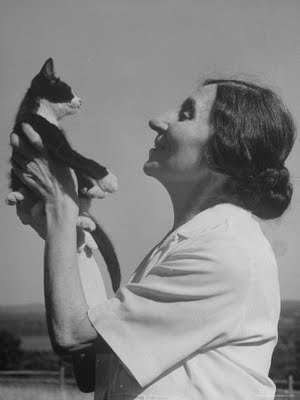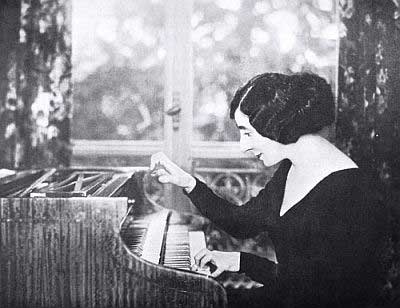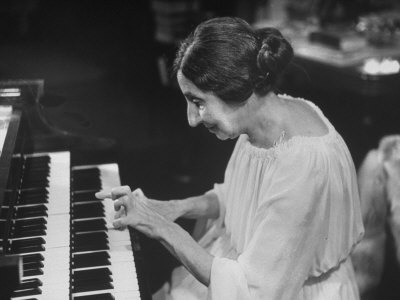<Back to Index>
- Astronomer Andrew Ellicott Douglass, 1867
- Harpsichordist Wanda Landowska, 1879
- General of the Greek Army Georgios Grivas (Digenis), 1898
PAGE SPONSOR
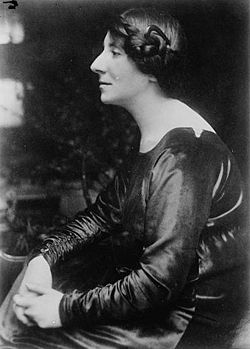
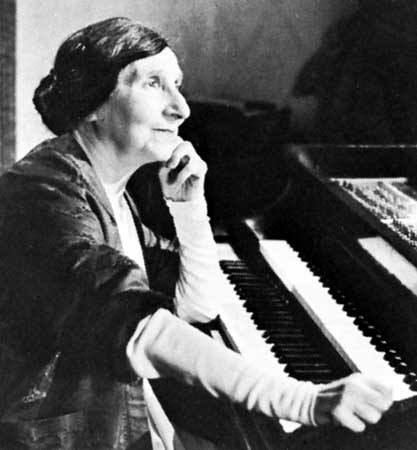
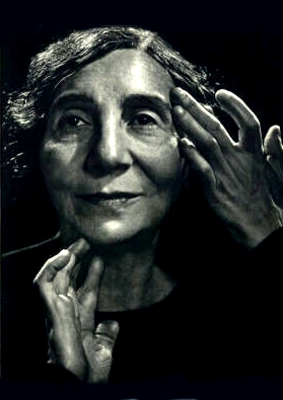
Wanda Landowska (July 5, 1879 – August 16, 1959) was a Polish (later a naturalized French citizen) harpsichordist whose performances, teaching, recordings and writings played a large role in reviving the popularity of the harpsichord in the early 20th century. She was the first person to record Bach's Goldberg Variations on the harpsichord (1931).
Landowska was born in Warsaw, where her father was a lawyer, and her mother a linguist who translated Mark Twain into Polish. She began playing piano at the age of four, and studied at the Warsaw Conservatory with the senior Jan Kleczynski and Aleksander Michałowski. She also studied composition with Heinrich Urban in Berlin. After marrying the Polish folklorist Henry Lew in 1900 in Paris, she taught piano at the Schola Cantorum there (1900 – 1912).
She later taught harpsichord at the Berlin Hochschule für Musik (1912 – 1919). Deeply interested in musicology, and particularly in the works of Bach, Couperin and Rameau, she toured the museums of Europe looking at original keyboard instruments; she acquired old instruments and had new ones made at her request by Pleyel and Company. These were large, heavily built harpsichords with a 16 - foot stop (a set of strings an octave below normal pitch) and owed much to piano construction. (These instruments have completely fallen out of fashion in the past four decades.)
Responding to criticism by fellow Bach specialist Pablo Casals, she once said: "You play Bach your way, and I'll play him his way."
A number of important new works were written for her: Manuel de Falla's El retablo de maese Pedro (Master Peter's Puppet Show) marked the return of the harpsichord to the modern orchestra. De Falla later wrote a harpsichord concerto for her, and Francis Poulenc composed his Concert champêtre for her.
She established the École de Musique Ancienne at Paris in 1925: from 1927, her home in Saint - Leu - la - Forêt became a center for the performance and study of old music. When the German Army invaded France, Landowska, who was Jewish, fled with her assistant and companion Denise Restout, leaving Saint - Leu in 1940, sojourning in southern France, and finally sailing from Lisbon to the United States. She arrived in New York on
December 7, 1941. The house in Saint - Leu was looted, and her
instruments and manuscripts stolen, so she arrived in the United States
essentially without assets. She settled in Lakeville, Connecticut, in 1949 and re-established herself as a performer and teacher in the United States, touring extensively. Her companion, Denise Restout, was editor and translator of her writings on music, including Musique ancienne, and Landowska on Music.
